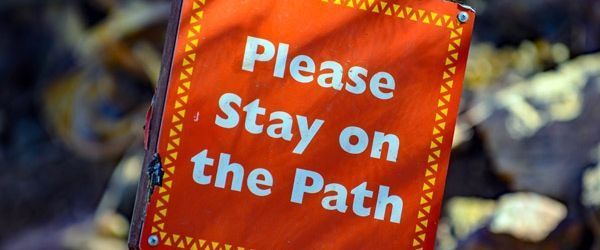
The role of obedience in making biblical disciples
By Ted S., SEND U — At a SEND training in Japan, I was confronted by a number of ideas about church planting that rocked my thinking. One of those ideas had to do with approaches to help integrate learning and doing, a key area of interest in my graduate studies on adult learning.
In Matthew 28:19-20
 , Jesus says “make disciples of all nations … teaching them to obey everything….” For me, when I studied diligently and taught accurately, I was quite satisfied with myself. Teaching in a seminary for over 10 years has helped to reinforce this view. But that is not the whole of the Great Commission (see Gary Ridley’s article
). The Great Commission includes the integral element of obedience,
which I found convenient to relegate to a second tier status. Yes, there were application talking points in my lectures or sermons, but they often remained just that—talk. Unfortunately, I was not alone.
, Jesus says “make disciples of all nations … teaching them to obey everything….” For me, when I studied diligently and taught accurately, I was quite satisfied with myself. Teaching in a seminary for over 10 years has helped to reinforce this view. But that is not the whole of the Great Commission (see Gary Ridley’s article
). The Great Commission includes the integral element of obedience,
which I found convenient to relegate to a second tier status. Yes, there were application talking points in my lectures or sermons, but they often remained just that—talk. Unfortunately, I was not alone.
A skeptical attitude towards obedience is somewhat understandable as a protection against a works-oriented mindset, which can easily be associated with such discussions. As a church planter in Poland for many years, we repeatedly taught the grace of God in the Christian life, from first to last. Working our way to heaven seems to be popular not only in Poland, but is also a central part of most world religions. Even God’s chosen people, the Jews, fell on this stumbling stone by trying to earn God’s favor by works by fulfilling the letter of the law. In our zeal to avoid the specter of works righteousness, we have tended to largely neglect the obedience aspect of the gospel. Jesus says that we will be blessed if we DO the commands God has for us ( John 13:17
 ). Knowing is not enough, the truth needs to travel that seemingly infinite distance from our head to our heart and hands.
). Knowing is not enough, the truth needs to travel that seemingly infinite distance from our head to our heart and hands.
Not only is obedience necessary, the obedience needs to be prompt as well. When Jesus called some to follow Him, their delay in obeying His command (“Let me first…”) caused them to be disqualified from following Jesus ( Matt. 8:21
 , 22
, 22
 ; Luke 9:59
; Luke 9:59
 , 60
, 60
 ). When Jesus calls us, we need to obey Him now, not later.
). When Jesus calls us, we need to obey Him now, not later.
In the SEND training mentioned above, I learned and experienced the Discovery Bible Study (DBS) approach used in many Disciple Making Movements. This approach puts a strong emphasis on obedience of God’s Word and can minister to both believers and nonbelievers. Each meeting includes not only hearing God speak through His Word, but also prayerfully considering the application of that truth in concrete terms, as well as support and accountability for one another in following through. In this way, the knowing of God’s Word is linked to specific steps of obedience to that Word, a critical step in making biblical disciples.
Originally published on the SEND U blog.
SEND U is SEND International’s department dedicated to training and lifelong learning for all our missionaries.
Additional Posts





